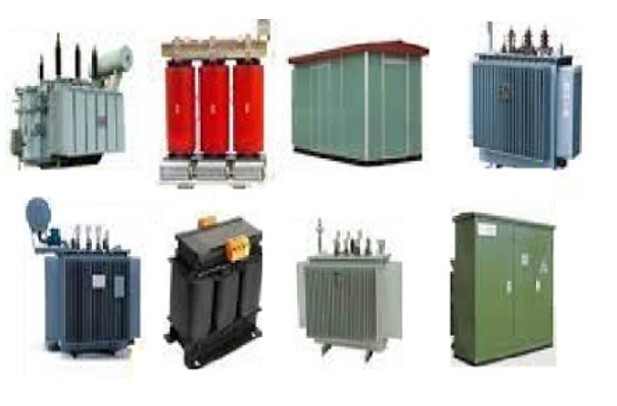10 electric motorbike start-ups you should watch out for
Electric motorbikes are steadily becoming a popular option for commuters, with electric mopeds and scooters are proving useful for last-mile delivery fleets.
Last year the e-motorbike industry took an even bigger step forwards, with big-name manufacturers such as Triumph increasingly turning their attention to battery power.
But the electric two-wheeled sphere is also providing an opportunity for new brands to take a slice of the burgeoning market. And while it’s a challenging market, some of them have the chance to become as well known in the e-motorbike space as the likes of Tesla and Polestar in electric cars.
Here, we take a look at the most enterprising and credible e-motorbike start-ups that are set to shake up the world of zero-emission two-wheelers.
Cake
Electric cake? Don’t worry, the Swedish brand isn’t fitting batteries to a victoria sponge. Instead it creates a selection of electric mopeds and dirt bikes for business fleets and leisure riders.
Founded by Stefan Ytterborn in 2016, Cake launched its first model, the Kalk, in 2018 as a lightweight, simple machine for urban riders. Soon after Cake expanded its line-up with two smaller models: the Ösa, a utility bike aimed at fleets; and the Makka, for commuters.

A modest line-up of motorbikes set the foundations for Cake, which has gone on to bigger and better things since its inception. Last year the firm rolled out a fleet of special edition bikes in Africa to support rangers tackling poaching.
Summer 2022 saw the firm vow to create the world’s first truly fossil-free e-motorbike by 2025, with Cake then announcing an expansion into the UK with a new store in London.
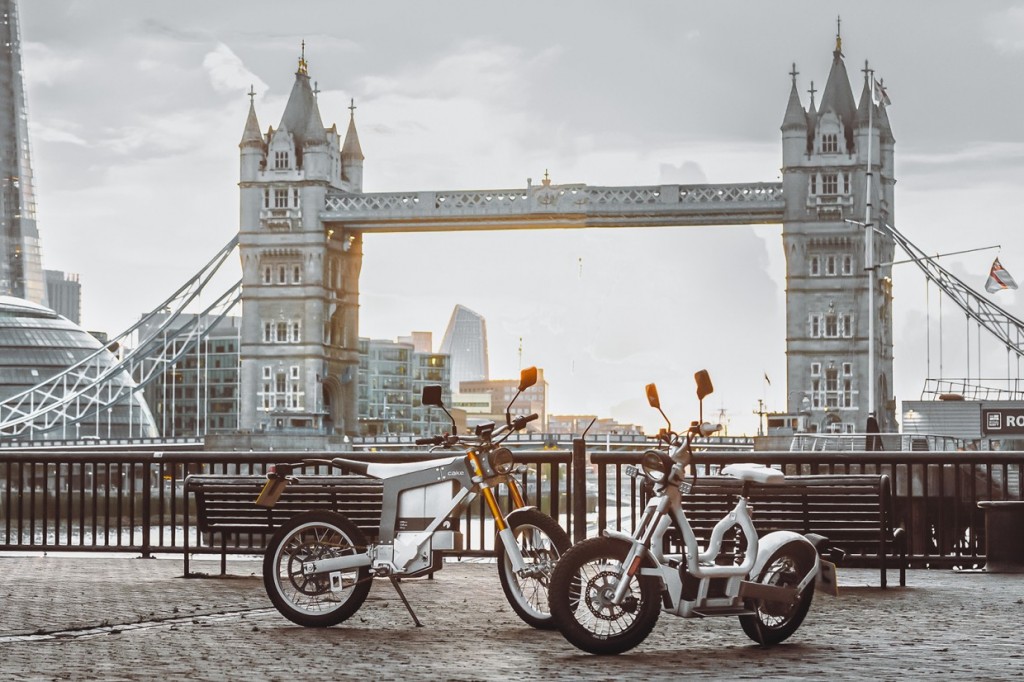
And before the year ended Cake launched its new Aik utility e-bike, three new kids bikes, and an electric quadbike for farmers; they even had time to collaborate with car brand Polestar on a special edition Makka.
Evidence suggests that with Cake’s ambition, they look set to take a pretty big, ahem, slice of the e-motorbike market.
Damon
The Canadian-based firm was founded in 2017 and has its sights firmly set on leading the electrification of performance motorbikes.
In 2020 the company launched the Damon Hypersport, a sleek sport-based machine, which in Premier trim, has an output of 150kW and a top speed of 200mph.

This was soon followed by the Damon Hyperfigher in 2022, a naked version of the Hypersport featuring the same technology and drivetrain.
Despite all the hype around the brand, Damon is yet to deliver any of its machines and claims an order bank totalling $100 million (£83 million).
_1.jpg)
Still, Damon’s ambitions look promising with the firm announcing plans in 2021 that it would build a new 110,000 square-foot production facility in British Columbia in Canada. Last June, Damon co-founder Dom Kwong said the plant was 50{64d42ef84185fe650eef13e078a399812999bbd8b8ee84343ab535e62a252847} complete, but it is not yet known if the site is fully operational.
Recently the firm expanded its operations to Indonesia, with Indika acting as a new distributor of the firm’s model line-up.
Davinci
Founded in 2013 as a technology firm centering on the development of robotic vehicles, Davinci has grown into a fully-fledged e-motorbike start-up – and is set to launch its first model this year.
The Chinese firm only revealed its DC100 e-motorbike in 2021, with the first model making its European debut at last year’s EICMA show in Milan. Striking in its appearance, the DC100 will arrive as a 100kW, 124mph performance-orientated machine, offering a range of up to 222 miles.
_0.jpg)
Although not confirmed by Davinci, the firm’s website does allow customers from the UK to reserve a DC100, so we could see them on British roads in the future.
Davinci has also launched the DC Classic, a special edition limited-run version of the firm’s flagship DC100 model.
Alongside its e-motorbike operations, the firm has opened a Davinci Lab – a hub for motorcycle enthusiasts to meet up – in China and plans to launch three more sites this year.
Energica
The Italian brand specialises in performance machines and has already proven its capabilities having been the manufacturer of the spec machine for the MotoE electric racing series.
Established in Modena in Italy, Energica offers a range of sports and naked e-motorbikes, including the Eva Ribelle and 150mph Ego.
Last year Energica ended its MotoE partnership, having built the Ego Corsa for the racing series since 2019, citing its plans to test itself in other areas beyond racing.
That test came in the form of the Energica Experia, a new touring bike featuring a 22.5kWh battery, which the firm claims is the largest ever fitted to a production e-motorbike.
.jpg)
And so far the move into the touring motorbike segment has paid off, with Energica reporting high pre-purchase orders for the Experia bike.
In its end-of-year report for 2022, Energica revealed that the firm had seen a 52{64d42ef84185fe650eef13e078a399812999bbd8b8ee84343ab535e62a252847} rise in unit sales and a 67{64d42ef84185fe650eef13e078a399812999bbd8b8ee84343ab535e62a252847} jump in motorcycle revenue. Encouraging signs indeed, but Energica will have to maintain its high sales figures if it is to keep pace with rivals Livewire and Zero.
Livewire
The electric motorbike brand is more of a spin-off than start-up: it launched in 2021 as a sub-brand of Harley Davidson. But given its prominence, we thought it deserved a place in our list.
American motorbike firm Harley-Davidson launched the Livewire electric motorbike in 2019 as a 75kW sports machine, before creating a standalone company – called Livewire – to spearhead its future line-up of electrified models.
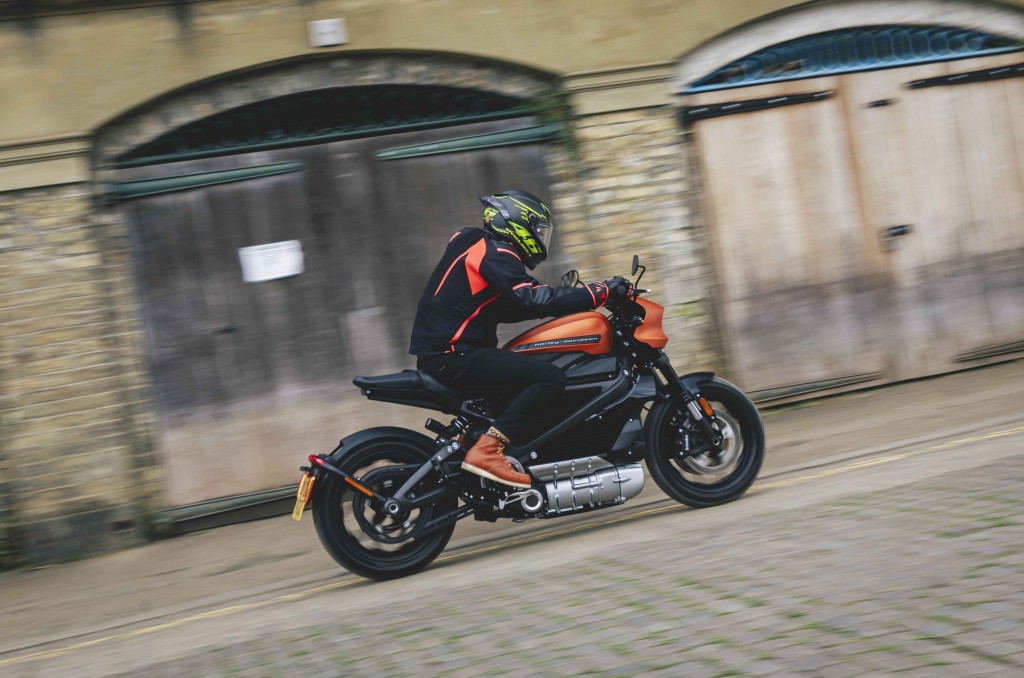
At present Livewire sells the One and revealed its second, more affordable e-motorbike, the Del Mar, last year. Set to go on sale in 2023, the Del Mar will arrive with a 110-mile range, with the firm targeting a 59kW power output.
Livewire is confident its new machines will be a success, with the firm predicting 101,000 electric motorbike sales by 2026. In 2021 the firm sold just 387 machines, so there is still a long way to go for a brand that is showing early signs of potential.
Maeving
Most of us will be familiar with the phrase ‘dare to be different’ and one firm embracing this philosophy is British start-up Maeving. And yes, it’s definitely called Maeving and not, errrr, Zip Zap.
Established in 2017, the company was founded by William Stirrup and Sebastian Inglis-Jones, who set about gathering a team of predominantly ex-Triumph engineers to create its first machine, the RM1.
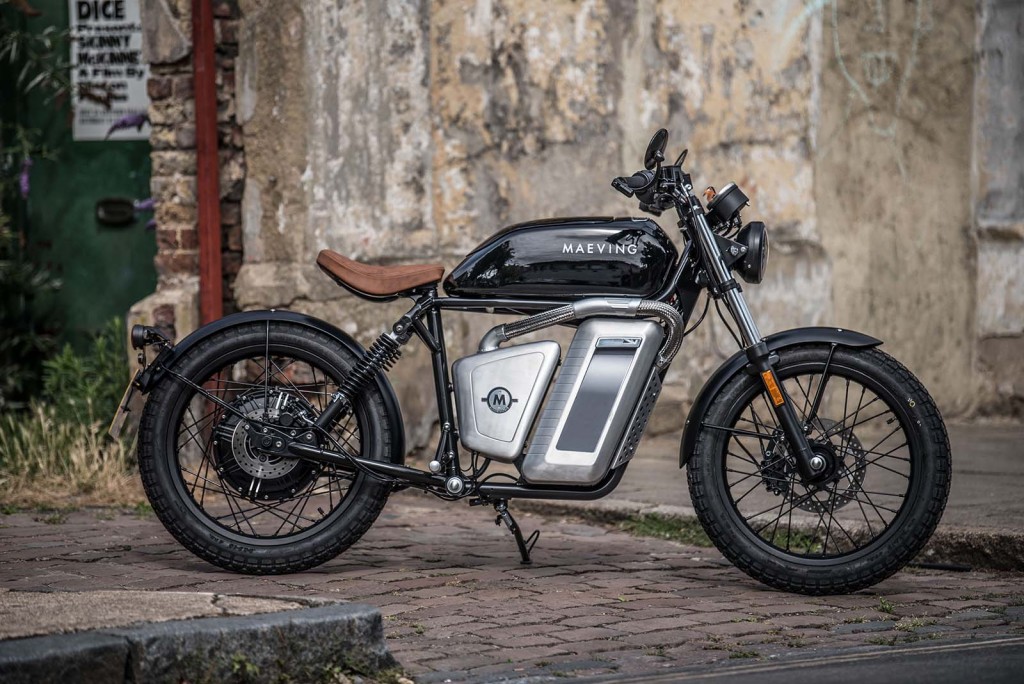
Featuring removable battery technology, the retro-styled RM1 is certainly different, with its design having been inspired by café racers and 1920’s board tracker motorbikes.
Maeving RM1 electric motorbike review
Despite supply chain issues, Maeving is pressing on with its RM1 and is aiming to deliver more than 1000 bikes this year.
Moving forward, Maeving co-founder Sebastian Ignlis-Jones said that the firm would continue using removable battery technology for the foreseeable future, adding that they would move away from this set-up when charging infrastructure is more readily available.
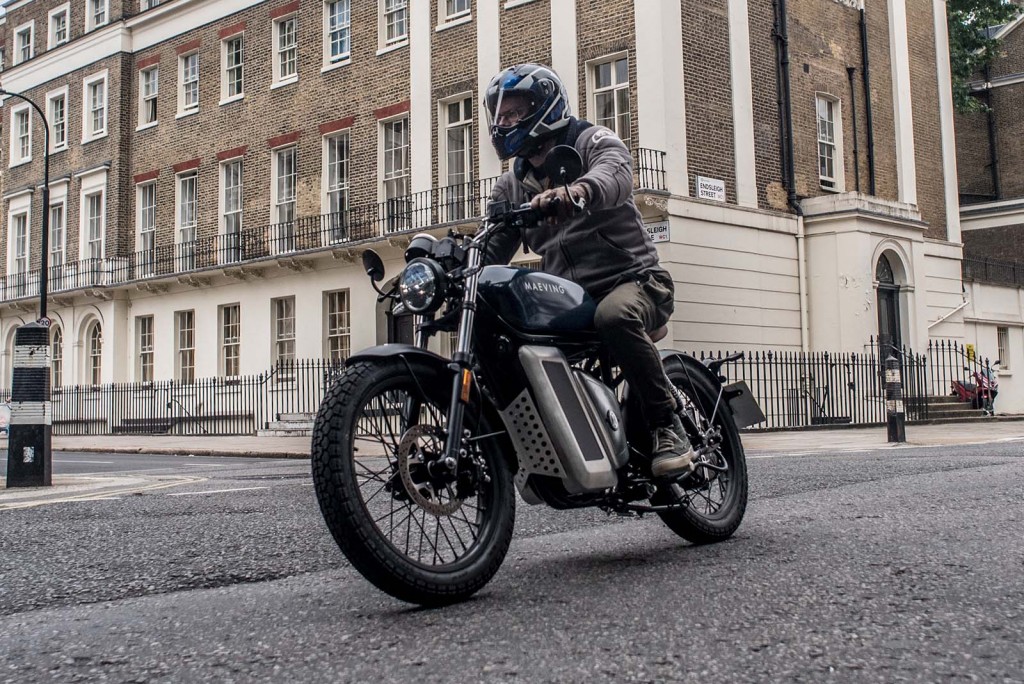
Silence
Headed by former head of Land Rover and Jaguar Land Rover’s specialist SVO division, John Edwards and former head of Nissan GB’s sales division Tony Lewis, Silence UK is aiming to revolutionise transport for last-mile deliveries and inner city commuting.
Silence UK is the British arm of specialist electric vehicle manufacturer Silence, which builds its e-scooters and e-mopeds at a facility in Barcelona. They also supply automotive brand Seat with machines for the Seat Mo 125 electric scooter

The UK business opened its first retail store in the West Midlands in 2021, and despite initial challenges as a result of the Covid-19 pandemic, the firm has slowly gained traction through the sale of its Vespa-like, twist and go electric scooters.
Co-founder Edwards told Move Electric that the firm was currently recruiting dealers to get national distribution. He added that Silence had partnered with Ocado, supplying the online grocery business with a fleet of 10 e-scooters for deliveries. This has since led the start-up to improve the robustness of its electric scooters.
Stilride
Best known for its trailblazing ‘industrial origami’, Stride is aiming to take a centuries-old technique and use it to create its own electric motorbike.
The firm, established by Jonas Nyvang and Tue Beijer in 2019, will use the innovative new process called Stilfold – where sheets of stainless steel are folded and curved into lightweight structures – to create its SUS1 lightweight electric motorbike.

Although it’s yet to fully launch its first electric motorcycle, the Scandinavian firm is confident its new machine will deliver, with more than 135,000 people on a waiting list.
Last year Stilride launched a funding campaign to help develop and refine its Stilfold process further, with the firm securing an initial £3.2 million investment.
And don’t think that Stilride’s ambitions stop at electric motorbikes; the firm will collaborate with fellow Swedish company Polestar to create the world’s first truly climate-neutral car by 2030.
Zapp
Zapp launched in 2017, and first showed a version of its i300 e-moped the following year. Since then the company has developed its new motorsport-inspired machine, with the i300 making its public debut at last year’s Goodwood Festival of Speed.
The Zapp i300 is an electric city bike that features a ‘step-through’ scooter design, with the firm adding its first model will have motorcycle levels of acceleration and riding dynamics.
_0.jpg)
Weighing just 92kg (without batteries) the i300 uses an exoskeleton frame that is combined with lightweight alloy composite bodywork.
Q&A: Zapp founder on why electric mopeds are the future
The i300 will be assembled in Thailand, but will use parts manufactured and sourced globally, including Britain. Zapp founder, Swin Chatsuwan, is confident that his brand can be scaled-up at pace due to the bike’s exoskeleton design, which is created using just four pieces of metal.
 Zero
Zero
Considering Zero now produces a whole range of e-motorbikes for almost all segments, it’s one of the more established and ambitious start-ups in our list.
Zero, formerly known as Electricross, was founded in 2006 by former NASA engineer, Neal Saiki, who set about revolutionising the e-motorbike industry with the launch of the Zero DS and S (for Street) in 2010.
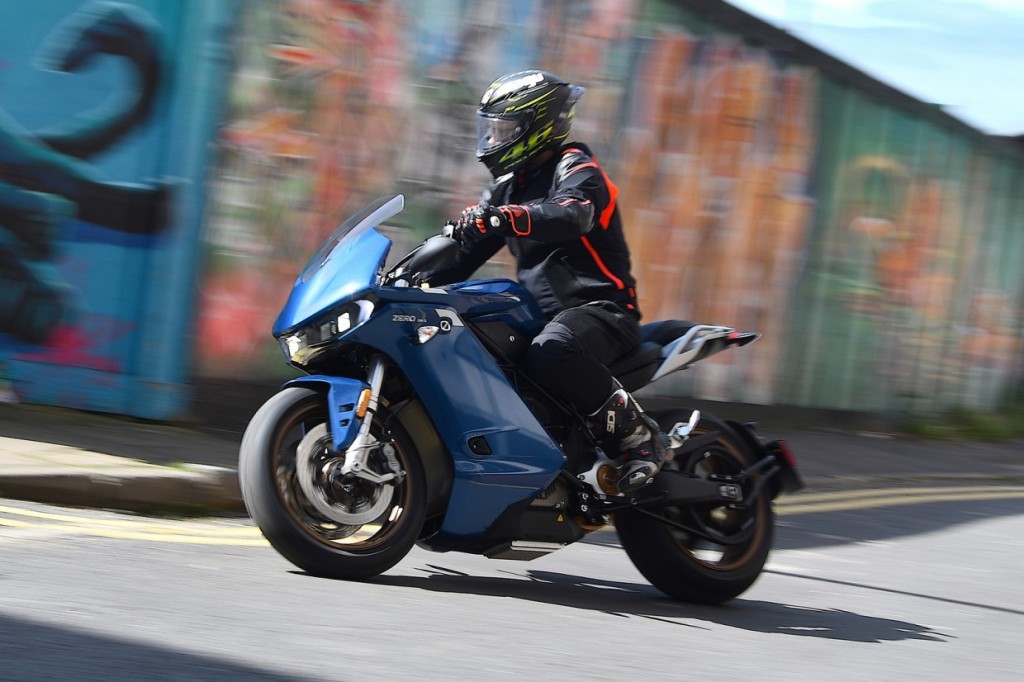
Since then the firm has built itself into a global e-motorbike brand, offering entry level commuter bikes to more powerful machines like the SR/S, in more than 30 countries worldwide. Last year Zero expanded its model line-up further with the launch of the DSR/X adventure bike, which blends urban and motorway commuting with off-road capabilities.
Like many brands in the motorbike sector, Zero has experienced supply chain issues, with semiconductors proving the most difficult to source.
Still, the firm had matched deliveries for 2021 and Zero’s European boss, Umberto Uccelli told Move Electric that despite a broad model line-up, more bikes could be on the way.
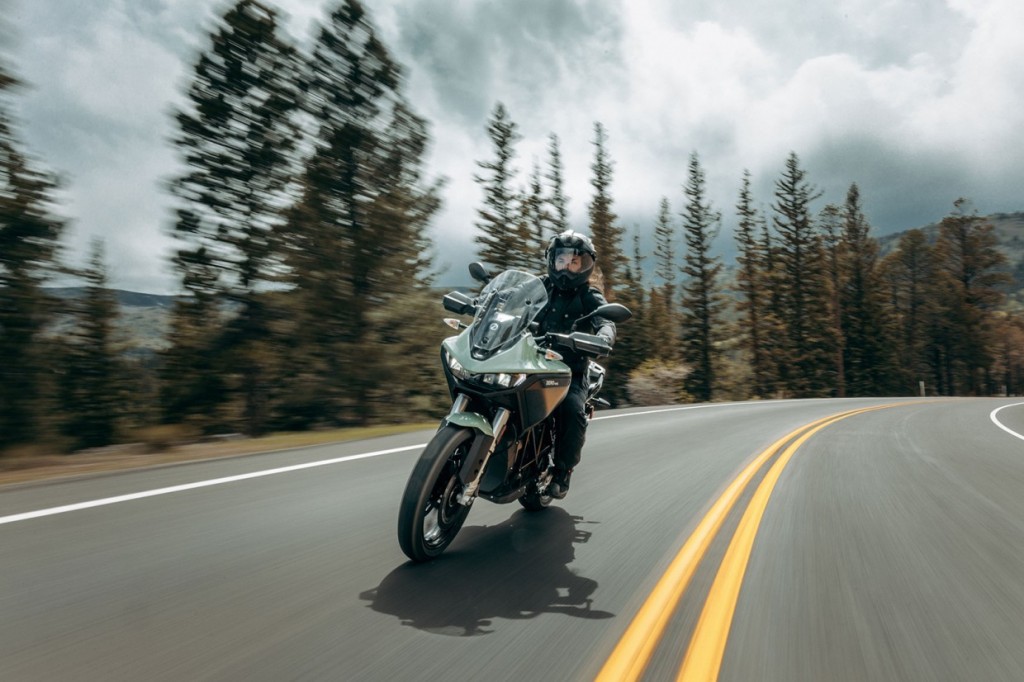
READ MORE
Subscribe to the Move Electric newsletter
e-CARS
E-cars news and reviews
Living with a Citroën Ami
Ten electric cars we’re excited for in 2023
Getting an EV sideways: how easy is it to drift a Kia EV6 GT?
Q&A: Jaguar Racing’s Sam Bird and Mitch Evans on Formula E’s new era
e-BIKES
E-bike reviews and news
Ten electric bikes we’re excited for in 2023
Can you get fit using an electric bike?
Gocycle G4i e-bike review
e-MOTORBIKES
E-motorbike reviews and news
Ten electric motorbikes we’re excited for in 2023
Super Soco TC Max electric motorbike review
Cake and Polestar team up for new special edition Makka e-motorbike
e-SCOOTERS
E-scooter news and reviews
Planned laws to legalise private e-scooters face delay
Five key takeaways from the rental e-scooter trials report
Which train firms have banned e-scooters from their services?
e-WORLD
E-world news
Move Electric’s best features of 2022: lap records, tuk-tuks… and sausage rolls
Volvo Trucks keeps on electric trucking with three new models
VIDEO: Watch Move Electric’s epic e-race across London

